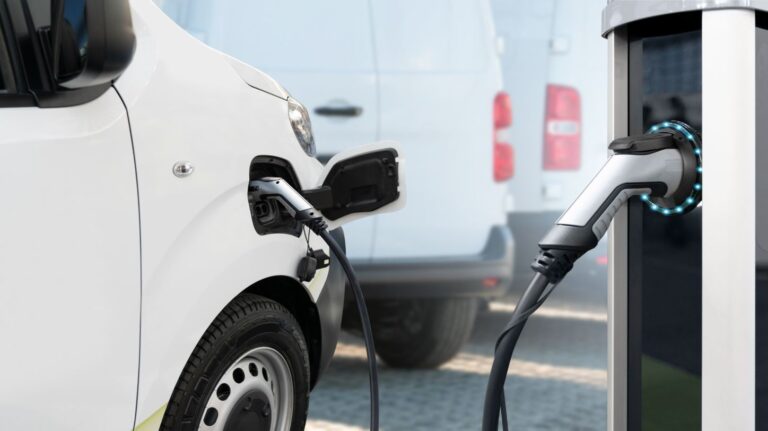The UK government has announced an extension of the Plug-in Van Grant, alongside additional financial support for electric taxis, motorbikes and wheelchair-accessible vehicles, as part of a £120m funding package aimed at accelerating the transition to zero-emission transport.
Future of roads minister Lilian Greenwood confirmed the funding on 25 February, stating that the Plug-in Van Grant will be extended for another year.
Under the scheme, businesses and van drivers can receive up to £2,500 when purchasing small vans up to 2.5 tonnes and up to £5,000 for larger vans up to 4.25 tonnes.
Since its introduction, the grant has supported the sale of more than 80,000 electric and zero-emission vans across the UK.
The government is also removing additional training requirements that previously applied only to zero-emission vans but not their petrol or diesel equivalents.
According to the UK Department for Transport (DfT), the move will cut costs, reduce bureaucratic barriers and simplify the hiring of drivers for electric van fleets.
Greenwood emphasised the importance of these measures in supporting businesses and drivers in making the transition to cleaner transport: “From van drivers and businesses to drivers with accessibility needs, bikers and cabbies, today we are making it easier, faster and cheaper for people to switch to electric vehicles.
“By making the transition to zero emissions a success, we’re helping to drive growth all over the UK, putting more money in people’s pockets and rebuilding Britain to deliver our Plan for Change.”
Taxi drivers will also benefit from the continued availability of a £4,000 grant to support the purchase of zero-emission black cabs and other models for another year.
Additionally, the Plug-in Wheelchair Accessible Vehicle Grant cap is being raised from £35,000 to £50,000, offering consumers a broader choice of models and improved transport options for disabled passengers.
Motorbike riders are set to benefit as well, with the government maintaining a £500 grant for the purchase of electric motorcycles for another year.
These incentives come as part of a wider £2.3bn government commitment to facilitate the transition to zero-emission vehicles.
The government also highlighted progress in EV adoption, reporting that more than 382,000 electric cars were sold in 2024, representing a 20% increase on the previous year.
With one in three used EVs priced under £20,000 and 21 new electric models available for under £30,000, officials are strongly encouraging the switch to electric transport.
According to the UK DfT, charging infrastructure is also expanding, with more than 74,000 public chargepoints now available across the UK, including nearly 20,000 added in the past year alone.
Further investment, including £200m announced in the 2024 Autumn Budget and £6bn in private sector funding, aims to ensure a robust and accessible EV charging network nationwide.
The government has also consulted car manufacturers on reinstating the 2030 ban on new petrol and diesel cars, with the consultation recently closing.
Ministers argue that with the average range of a new EV now at 236 miles and lifetime emissions significantly lower than petrol vehicles, the transition to zero-emission transport is essential for achieving the UK’s net zero ambitions.
Achievements and innovations in sustainable urban mobility will be recognised and celebrated at the fourth annual CiTTi Awards on 25 November 2025 at De Vere Grand Connaught Rooms in London. Visit www.cittiawards.co.uk to learn more about this unmissable event for the UK’s transportation sector!





